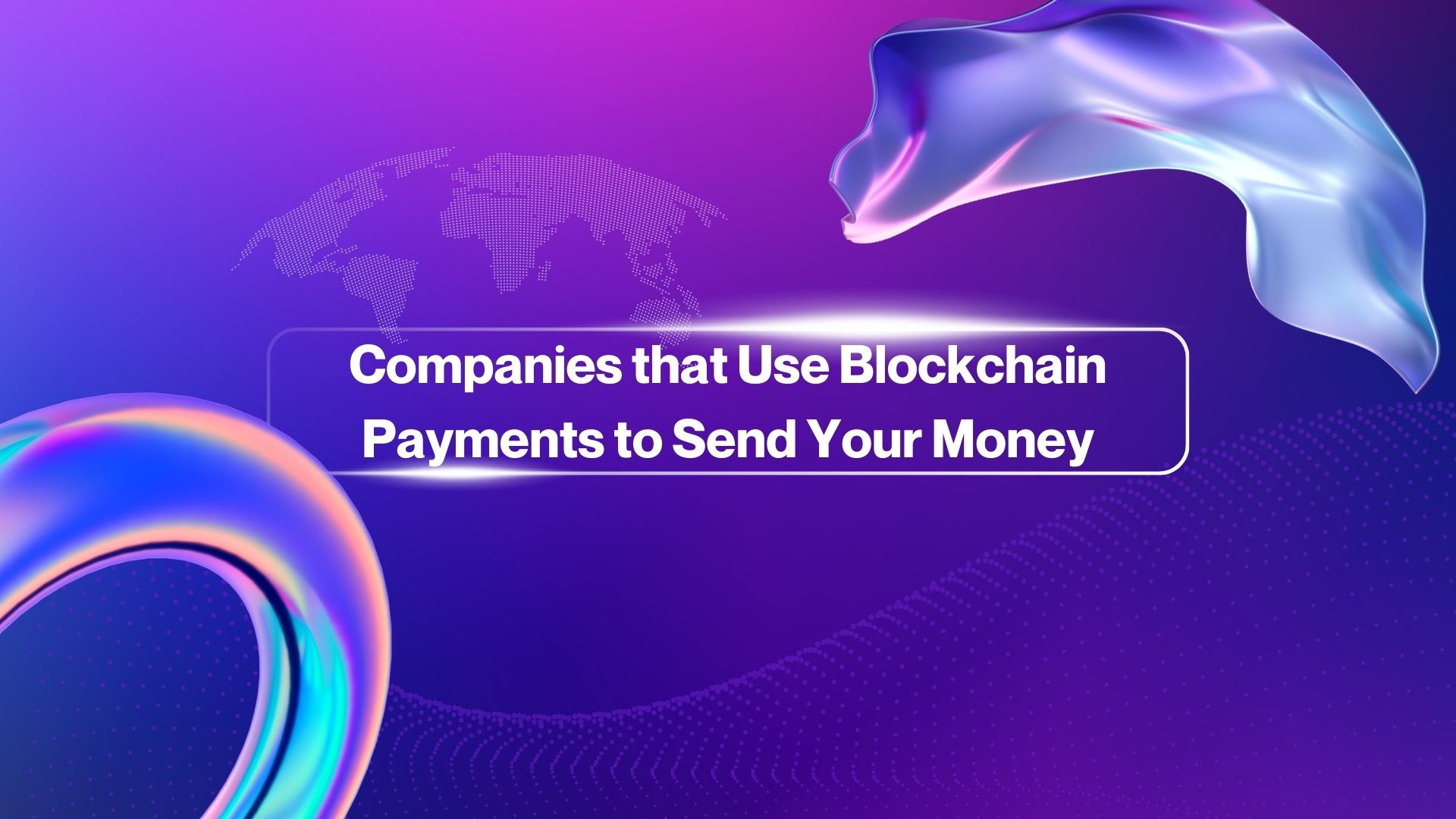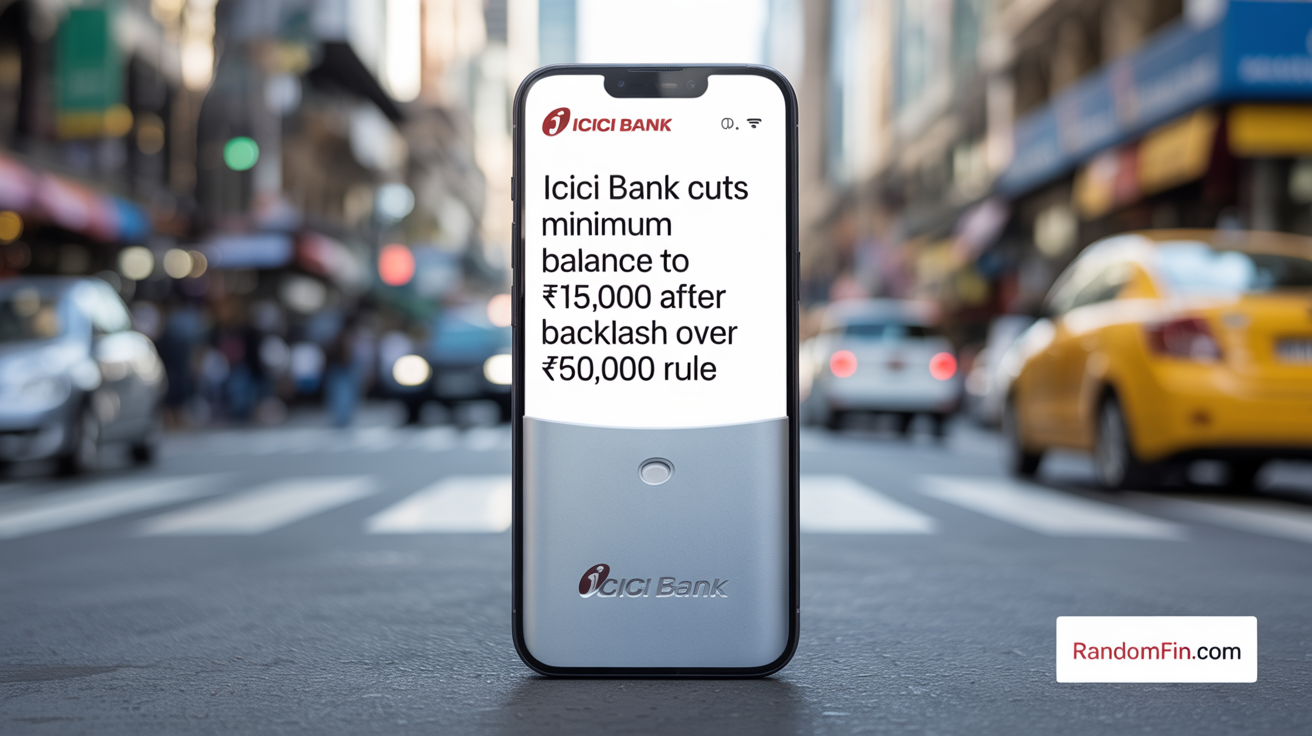Are you looking for Companies that Use Blockchain Payments to Send Your Money? If Yes, You are at the right place.
Blockchain technology is changing the way we send and receive money across the world. Unlike traditional banking systems, blockchain offers faster, cheaper, and more secure transactions. Today, many companies are using blockchain to improve payment services, especially for cross-border transfers.
Sending money across borders has traditionally been slow, expensive, and filled with middlemen. But with the rise of blockchain technology, all of that is starting to change. Blockchain offers a faster, more secure, and cost-effective way to transfer funds, whether you’re sending money to family overseas or running an international business. If you’re a small business owner, you may also want to explore the best payment gateways for small businesses to see how traditional and blockchain-based options can work together for smoother transactions.
Instead of relying on banks and long processing times, blockchain payments use decentralized networks that can complete transactions in minutes, often with lower fees and greater transparency. This is why many forward-thinking companies have started using blockchain to improve the way money moves around the world.
In this article, we’ll explore the top 10 companies that are leading the way in blockchain-based payment solutions. These companies are not only embracing innovation but also making it easier for people and businesses to send money quickly, securely, and without borders. To understand the bigger picture, it’s also helpful to explore what are the role of payment gateways in cross-border e-commerce, as they work alongside blockchain to streamline international transactions.
What Is Blockchain?
Blockchain is a decentralized, distributed ledger technology that records transactions across a network of computers. Each transaction is stored in a “block,” and these blocks are linked together in a “chain,” hence the name blockchain. This technology ensures that once data is recorded, it cannot be altered without altering all subsequent blocks, which makes it highly secure and transparent.
How Does Blockchain Work?
Blockchain operates on a peer-to-peer network, where each participant (or node) has access to the entire ledger of transactions. When a transaction is initiated, it is grouped with other transactions into a block. This block is then verified by the network through a process called consensus, where the majority of nodes must agree that the transaction is valid. Once verified, the block is added to the chain, creating a permanent and unalterable record.
What Are Blockchain Payments?
Blockchain payments refer to the use of blockchain technology to facilitate the transfer of funds. Unlike traditional payment methods that rely on intermediaries like banks or payment processors, blockchain payments are direct, peer-to-peer transactions that occur on the blockchain network. This eliminates the need for a central authority, reduces transaction costs, and increases the speed of transfers.
How Do Blockchain Payments Work?
Blockchain payments work by transferring digital assets (such as cryptocurrencies) between users on a blockchain network. When a user initiates a payment, the transaction is recorded on the blockchain and is visible to all participants in the network. The transaction is then validated by network nodes, and once consensus is reached, the payment is completed and the transaction is permanently recorded on the blockchain.
Why Use Blockchain Payments?
Blockchain payments offer several advantages over traditional payment methods:
- Security: Transactions are encrypted and recorded on a tamper-proof ledger.
- Transparency: Every transaction is visible to all participants, ensuring complete transparency.
- Speed: Payments can be processed almost instantly, especially for cross-border transactions.
- Cost-Effectiveness: By eliminating intermediaries, blockchain payments reduce transaction fees.
- Decentralization: No single entity controls the blockchain, reducing the risk of fraud or manipulation.
Top 10 Companies that Use Blockchain Payments to Send Your Money
Here are the Top 10 Companies that Use Blockchain Payments to Send Your Money…
1. Ripple (RippleNet)
Ripple, through its RippleNet platform, is revolutionizing how financial institutions move money across borders. By using blockchain technology, Ripple enables banks and payment providers to process payments instantly, securely, and at a fraction of the traditional cost.
RippleNet removes intermediaries that slow down and inflate the cost of international transfers, offering a real-time, cost-efficient alternative. Trusted by over 300 financial institutions worldwide, RippleNet is especially beneficial for remittances and business payments.
Key Features:
- Real-Time Settlement: Transactions are settled in real-time, eliminating the delays often associated with traditional cross-border payments.
- Low Transaction Costs: By bypassing traditional financial intermediaries, RippleNet significantly reduces transaction fees.
- Integration with Existing Banking Systems: RippleNet is designed to work seamlessly with existing financial infrastructure, making it easy for banks to adopt.
Pros:
- Fast and low-cost international transactions
- Strong institutional partnerships
- Scalable and secure
Cons:
- Ongoing regulatory challenges
- Limited use outside institutional payments
Why It Stands Out: Ripple’s technology has been widely adopted by major financial institutions around the world, making it a leading player in blockchain payments. Its ability to integrate with existing banking systems while offering the speed and cost benefits of blockchain sets RippleNet apart.
2. Coinbase
Coinbase is more than just a cryptocurrency exchange—it’s a full-fledged platform for digital payments and transfers. With its user-friendly design and strong reputation for security, Coinbase enables individuals and businesses to send and receive money through blockchain quickly.
The platform supports a wide range of cryptocurrencies and integrates seamlessly with wallets and banking services, making global crypto transactions more accessible. Coinbase is particularly popular for its ease of use, which appeals to beginners entering the world of blockchain payments.
Key Features:
- User-Friendly Interface: Coinbase offers an intuitive and easy-to-navigate platform, making it accessible to both beginners and experienced users.
- Strong Security Measures: With advanced security protocols, including two-factor authentication and insurance against certain types of cyber-attacks, Coinbase ensures the safety of users’ funds.
- Support for Multiple Cryptocurrencies: Coinbase supports a wide range of cryptocurrencies, allowing users to send and receive payments in their preferred digital assets.
Pros:
- Beginner-friendly
- High liquidity and asset selection
- Strong regulatory compliance
Cons:
- Higher fees compared to other platforms
- Limited availability in some countries
Why It Stands Out: Coinbase’s reputation as a reliable and secure platform, combined with its extensive support for multiple cryptocurrencies, makes it a top choice for sending and receiving money globally via blockchain.
3. BitPay
BitPay is one of the earliest and most recognized companies in the crypto payment space. It helps businesses accept payments in Bitcoin and other cryptocurrencies, which are automatically converted into local currency to avoid volatility risks.
This model allows merchants to enjoy the benefits of blockchain without handling crypto themselves. BitPay offers plugins for major e-commerce platforms, invoice generation tools, and even crypto debit cards, making it a go-to for small and medium businesses looking to embrace digital payments.
Key Features:
- Instant Conversion: BitPay converts cryptocurrency payments to fiat currency at the time of transaction, protecting businesses from market fluctuations.
- Low Fees: BitPay offers low transaction fees, making it an attractive option for businesses looking to reduce payment processing costs.
- Integration with Major E-Commerce Platforms: BitPay can be easily integrated with platforms like Shopify, WooCommerce, and Magento, enabling businesses to accept crypto payments seamlessly.
Pros:
- Supports multiple cryptos
- Easy setup for merchants
- Low processing costs
Cons:
- Limited consumer-focused features
- Mainly focuses on Bitcoin
Why It Stands Out: BitPay simplifies the process for businesses to accept and manage cryptocurrency payments, making blockchain payments more accessible to merchants around the world.
4. Circle (USD Coin)
Circle is the company behind USD Coin (USDC), a widely used stablecoin backed 1:1 by US dollars. Unlike typical cryptocurrencies, USDC offers the stability of fiat money while maintaining the speed and transparency of blockchain.
Circle’s infrastructure enables businesses and individuals to send, receive, and hold USDC with ease. The company has built a reputation for compliance, transparency, and strong partnerships, making it a reliable player for anyone looking to move money across borders efficiently.
Key Features:
- Stable Value: As a stablecoin, USDC maintains a 1:1 value with the US dollar, reducing the volatility commonly associated with cryptocurrencies.
- Regulatory Compliance: Circle ensures that USDC is fully compliant with regulations, providing peace of mind for businesses and individuals.
- Global Reach: USDC can be sent and received globally, making it an ideal choice for international payments.
Pros:
- Low volatility
- Backed by reserves and audits
- Widely accepted in DeFi and payment platforms
Cons:
- Centralized structure
- Limited direct consumer use
Why It Stands Out: USDC offers the benefits of blockchain payments, such as speed and security, while maintaining the stability of traditional fiat currencies. This makes it a preferred option for businesses and individuals looking for a reliable digital payment method.
5. Square (Block)
Block, formerly Square, is well-known for modernizing point-of-sale systems and mobile payments. But the company has taken it further by integrating Bitcoin into its ecosystem. Users can buy, sell, and send Bitcoin directly through the Cash App, one of Block’s most popular products.
Beyond this, Block is investing heavily in blockchain development through initiatives like TBD and Spiral, aiming to decentralize finance further. With its forward-thinking approach, Block is helping bridge traditional finance and the crypto economy.
Key Features:
- Support for Bitcoin Payments: Block allows users to buy, sell, and send Bitcoin directly through its platform.
- Decentralized Finance (DeFi) Initiatives: Block is involved in various DeFi projects, aiming to expand the use of blockchain technology in finance.
- Innovative Financial Services: Block continues to innovate in the financial sector, exploring new ways to integrate blockchain into everyday financial activities.
Pros:
- Intuitive app-based platform
- Focused on financial inclusion
- Committed to crypto adoption
Cons:
- Limited cryptocurrency support
- Still early in blockchain development
Why It Stands Out: Block’s commitment to integrating blockchain into mainstream finance, along with its ongoing innovation in DeFi, makes it a pioneer in blockchain payments.
6. IBM Blockchain
IBM Blockchain is tailored for enterprise-level financial transactions. Built on Hyperledger Fabric, IBM’s platform allows organizations to create private, permissioned blockchain networks for secure and efficient transactions.
It is used by banks, insurers, and supply chain companies to streamline operations and reduce fraud. IBM focuses on transparency, auditability, and interoperability with existing systems. This makes it ideal for institutions that require trusted, large-scale blockchain solutions for cross-border payments.
Key Features:
- Scalability: IBM Blockchain is designed to handle large volumes of transactions, making it suitable for enterprises.
- Interoperability: The platform supports integration with existing financial systems, ensuring seamless operation.
- Enterprise-Grade Security: IBM Blockchain provides robust security measures to protect transactions and sensitive data.
Pros:
- Built for enterprise scale
- Trusted technology brand
- Supports private blockchain networks
Cons:
- Not ideal for individuals or small businesses
- Higher implementation costs
Why It Stands Out: IBM’s reputation as a leader in enterprise technology, combined with its scalable and secure blockchain solutions, makes IBM Blockchain a top choice for large corporations looking to implement blockchain payments.
7. PayPal
As one of the most recognized names in online payments, PayPal entering the blockchain space marked a significant shift. The platform now allows users in select regions to buy, hold, and use cryptocurrencies like Bitcoin, Ethereum, and Litecoin.
Payments made through crypto are automatically converted to fiat for merchants, ensuring ease of use. This move enables millions of PayPal users to explore blockchain transactions without leaving the app, fostering mainstream adoption of digital currencies.
Key Features:
- Integration with Existing Services: PayPal’s cryptocurrency offerings are integrated with its existing services, making it easy for users to manage both fiat and digital currencies in one place.
- User-Friendly Interface: PayPal’s platform is known for its ease of use, and its cryptocurrency features are no exception.
- Strong Security Protocols: PayPal employs industry-leading security measures to protect users’ funds and personal information.
Pros:
- Easy to use
- High trust and recognition
- Supports multiple cryptos
Cons:
- Limited control over crypto assets
- Only available in select markets
Why It Stands Out: PayPal’s adoption of cryptocurrency payments is a significant step towards mainstream acceptance of blockchain technology, offering users a familiar and trusted platform for blockchain-based transactions.
8. Stellar (Stellar Lumens)
Stellar is a decentralized protocol focused on simplifying cross-border payments, particularly for underserved markets. Its blockchain is optimized for speed and cost-efficiency, with transactions settling in just a few seconds for a fraction of a cent.
Stellar’s native currency, Lumens (XLM), facilitates the movement of value between different currencies. With partnerships ranging from NGOs to major banks, Stellar is building a more inclusive global payment system that works for both individuals and institutions.
Key Features:
- High-Speed Transactions: Stellar’s network can process transactions in a matter of seconds, making it ideal for real-time payments.
- Low Fees: Stellar’s transaction fees are extremely low, making it a cost-effective option for cross-border payments.
- Partnerships with Financial Institutions: Stellar has established partnerships with various financial institutions, enhancing its credibility and reach.
Pros:
- Efficient and affordable
- Strong focus on developing markets
- Open-source and community-driven
Cons:
- Less popular for retail usage
- Lower awareness compared to major platforms
Why It Stands Out: Stellar’s commitment to financial inclusion and its ability to facilitate fast, low-cost cross-border payments make it a key player in the blockchain payment space.
9. Revolut
Revolut is a digital banking app that blends traditional finance with blockchain-based services. Users can buy, sell, hold, and transfer cryptocurrencies alongside fiat currencies within the app. Revolut supports quick conversions between currencies at competitive exchange rates, making it a handy tool for travelers and international freelancers.
Its seamless user experience and wide range of features have made it a favorite for those looking to manage both crypto and traditional finance in one place.
Key Features:
- Multi-Currency Accounts: Revolut allows users to hold and exchange multiple currencies, including cryptocurrencies.
- Instant Currency Exchange: Users can instantly exchange between different currencies, including crypto, at competitive rates.
- Support for Cryptocurrency Transactions: Revolut enables users to send and receive cryptocurrencies, making it a versatile payment solution.
Pros:
- Convenient mobile platform
- Instant exchanges
- Suitable for global users
Cons:
- Crypto custody is controlled by Revolut
- Limited advanced features for crypto traders
Why It Stands Out: Revolut’s seamless integration of cryptocurrency with traditional banking services provides users with a flexible and comprehensive financial platform.
10. Veem
Veem specializes in simplifying global business payments by using blockchain as part of its multi-rail payment technology. It combines blockchain with traditional payment routes to find the most efficient path for each transaction.
Veem targets small and medium-sized enterprises, offering transparent pricing, real-time tracking, and no hidden fees. With its focus on reducing costs and improving payment speed, Veem is helping businesses move money internationally with greater confidence and control.
Key Features:
- Multi-Rail Technology: Veem uses a combination of blockchain and traditional payment rails to optimize the payment process.
- Transparent Pricing: Veem offers transparent pricing with no hidden fees, making it easier for businesses to manage costs.
- Seamless International Payments: Veem’s platform is designed to simplify international payments, reducing the complexity and time typically associated with cross-border transactions.
Pros:
- Transparent and affordable
- Business-focused
- Easy onboarding and use
Cons:
- Less suitable for individuals
- Not a crypto exchange or wallet
Why It Stands Out: Veem’s blockchain-powered platform simplifies and reduces the cost of cross-border B2B payments, making it an attractive option for businesses engaged in international trade.
How to Choose the Best Company that Uses Blockchain Payments to Send Your Money?
When selecting a company for blockchain payments, consider the following factors:
- Security: Ensure the company uses robust security measures to protect your funds and personal information.
- Speed: Choose a company that offers fast transaction times, especially for international payments.
- Cost: Compare transaction fees across different companies to find the most cost-effective option.
- Regulation and Compliance: Verify that the company complies with relevant financial regulations and operates within legal frameworks.
- User Experience: Opt for a platform that is easy to use, with a straightforward process for sending and receiving payments.
- Customer Support: Look for companies that offer reliable customer service to assist with any issues or questions.
Benefits of Using Companies that Use Blockchain Payments to Send Your Money
- Lower Fees: By eliminating intermediaries, blockchain payments often have lower transaction fees compared to traditional banking methods.
- Faster Transactions: Blockchain technology allows for near-instant payments, especially for cross-border transactions that typically take days with traditional methods.
- Transparency: Every transaction is recorded on the blockchain, providing a transparent and immutable record.
- Security: Blockchain’s decentralized nature and encryption make it highly secure against fraud and hacking.
- Global Reach: Blockchain payments can be sent and received anywhere in the world, without the need for a central authority.
Traditional Payments vs Blockchain Payments
- Centralization: Traditional payments are controlled by centralized entities like banks, whereas blockchain payments are decentralized, with no single point of control.
- Speed: Traditional payments, especially cross-border, can take several days, while blockchain payments are often instant.
- Cost: Traditional payment methods involve higher fees due to multiple intermediaries, while blockchain payments generally have lower fees.
- Transparency: Blockchain payments are fully transparent and traceable, whereas traditional payments are less transparent and often involve intermediaries that obscure the transaction process.
How Blockchain Improves Payments?
Blockchain technology improves payments by:
- Eliminating Intermediaries: Reducing the need for middlemen like banks, which lowers costs and speeds up transactions.
- Enhancing Security: Providing a secure, tamper-proof ledger that protects against fraud and unauthorized transactions.
- Increasing Transparency: Offering a fully transparent transaction history that is accessible to all participants on the network.
- Facilitating Global Transactions: Allowing seamless cross-border payments without the need for currency conversion or multiple intermediaries.
FAQs
What are Blockchain Payments?
Blockchain payments are transactions that occur on a blockchain network, allowing for peer-to-peer transfers of digital assets without intermediaries.
Why Should I Use a Company that Offers Blockchain Payments?
Using a company that offers blockchain payments can provide benefits like lower fees, faster transactions, increased security, and greater transparency.
Are Blockchain Payments Secure?
Yes, blockchain payments are highly secure due to the decentralized nature of the network and the use of encryption and consensus mechanisms.
Can Businesses Use Blockchain Payments?
Absolutely. Many businesses, especially those with international customers, use blockchain payments for faster transactions and lower fees. Platforms like Ripple, BitPay, and Veem are designed with business needs in mind.
Do I Need to Own Cryptocurrency to Use Blockchain Payments?
Not always. Some platforms allow users to send or receive payments in local currency while using blockchain as the underlying technology. Others require cryptocurrency, depending on the service.
Which Blockchain Platform is Best for Sending Money Internationally?
Ripple, Stellar, and Veem are among the best platforms for international money transfers due to their speed, low cost, and global reach.
Conclusion
As the financial landscape continues to evolve, blockchain technology is playing a pivotal role in transforming how we send and receive money. The companies highlighted in this article are at the forefront of this revolution, offering faster, more secure, and cost-effective payment solutions compared to traditional methods. Whether through stablecoins, decentralized networks, or integration with existing financial systems, these companies are leveraging blockchain to enhance transparency, reduce fees, and facilitate global transactions.










Leave a Reply